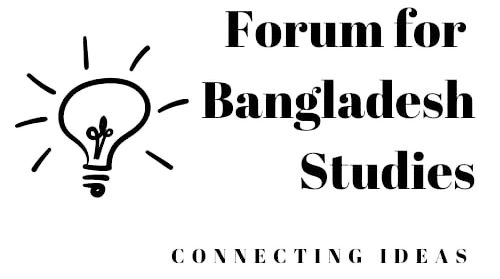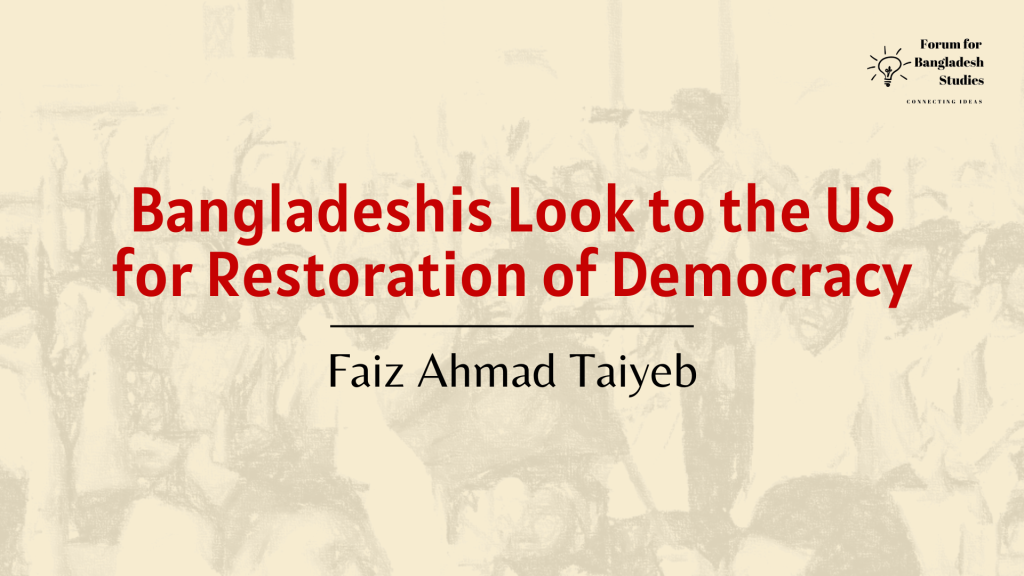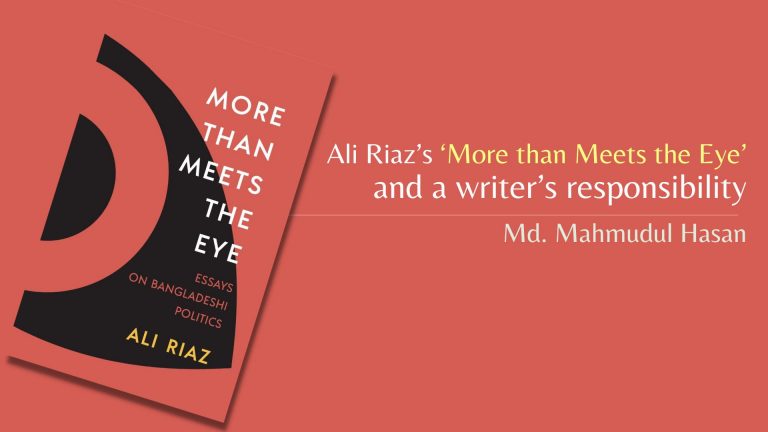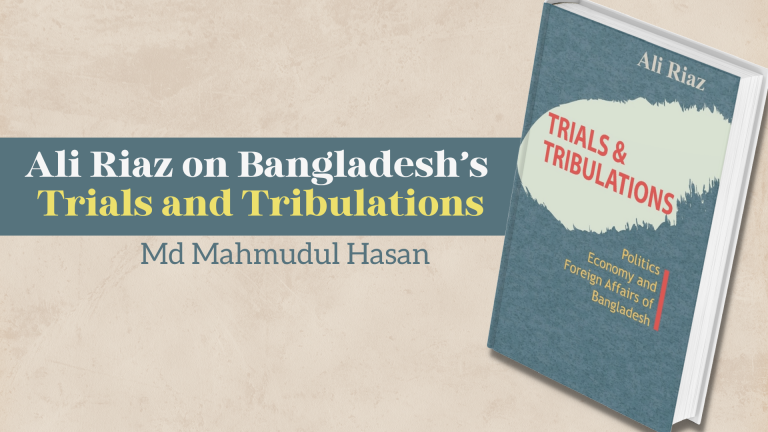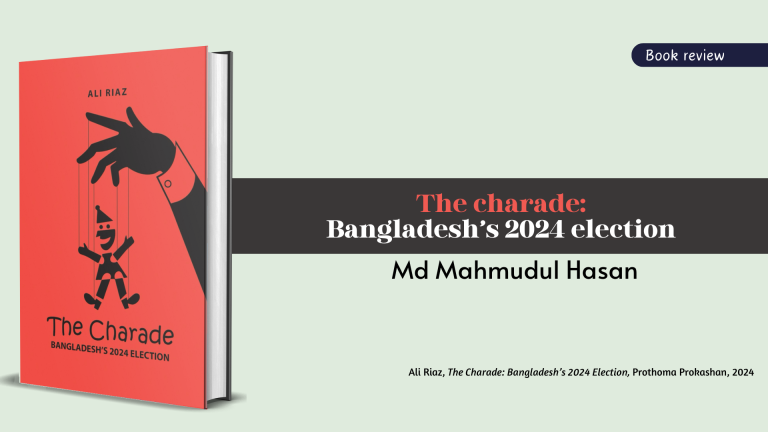On May 24, the U.S. government announced that it “would impose visa restrictions on individuals and their immediate family members, if they are responsible for, or complicit in, undermining the democratic election process in Bangladesh.” The announcement is the latest in a string of moves by the U.S. to press Bangladesh’s Awami League (AL) government to ensure that elections are free and fair.
Bangladesh will vote in general elections on January 7. For several months now, the opposition Bangladesh Nationalist Party (BNP) has been leading street protests calling on the AL to step aside to allow elections to be held under a neutral caretaker government. However, the AL government has not conceded this demand. Instead, it has stepped up its crackdown on BNP leaders.
As Badiul Alam Majumdar, secretary of the non-government organization Shujan has pointed out, “The international community is exerting pressure because the undemocratic or authoritarian government of Bangladesh is not responding to the demands of its citizens. In 2018, the PM promised a fair election, but in reality, the day’s voting took place on the previous night.”
Democracy in Bangladesh has not taken firm root. Democratic institutions are weak. Rigging of elections, which is not uncommon, is the result of the failure of successive governments to build a build a strong framework for the rule of law. Institutions do not function independently.
Under the AL government, the Election Commission, the police and other law enforcement agencies, and the judiciary are operating as extensions of the ruling party. In the last 15 years of AL rule, institutions have been stacked with party loyalists and appointees.
Under the AL’s autocratic rule, media rights, civic freedoms and labor rights are restricted. According to the Hong Kong-based Asian Human Rights Commission, between 2009 and June 2022, 623 people became victims of enforced disappearance in Bangladesh, while at least 2,658 people were victims of extrajudicial killing.
Amid this bleak scenario, although the restoration of democracy should be an internal task, Bangladeshis are looking to the U.S. as a beacon of hope for the restoration of democracy in their country,
Many Bangladeshis believe that the U.S. can play a pivotal role in the survival of democracy in the country.
The U.S. has leverage over Dhaka as it is among Bangladesh’s most significant trade partner and export destination. It is the leading collaborator in education, research, and intellectual property. It is an important partner of Bangladesh in natural disaster defense as well as a vital contributor to social development initiatives.
The U.S played an important role in brokering a settlement in 2007 that led to the pro-BNP caretaker government stepping aside, facilitating Hasina’s rise to power in 2009. Her government oversaw flawed elections in 2014 and 2018, both of which she won.
In December 2021, the U.S. imposed sanctions on several officials of the Rapid Action Battalion (RAB) for their gross abuse of human rights. That appears to have had positive impact as there has been a notable improvement in democratic rights and civic spaces, and a significant reduction in extrajudicial killings and enforced disappearances.
However, the visa restriction policy may fall short of achieving its objective of pushing Bangladesh to ensure free and fair elections.
Even if the AL government, under pressure of such policies, removes a few officials, so packed is the system with party loyalists that many more are in place to rig an election in favor of the AL.
Despite sanctions and other pressure from foreign governments, Hasina has refused to budge from her position on several issues. She has refused to sign agreements such as the Acquisition and Cross-Servicing Agreement (ACSA) and the General Security of Military Information Agreement (GSOMIA).
The AL government has refused to change the data localization policy; major repressive provisions remain in legislations like the Digital Security Act (DSA) and the Data Protection Act (DPA). Additionally, its approach to Rohingya repatriation has at times excluded engagement with the United Nation, the European Union and the U.S. Instead, it has opted to work with China on the matter.
Besides, media freedom remains constrained under Hasina’s leadership, with neutral outlets facing obstacles in generating corporate revenue. A majority of media outlets have become pro-government.
Bangladesh has become a state of criminal profiteering, which, even if the prime minister wants it, fair elections will not be possible under this government as the police, army officers, judges, bureaucrats are all illegally empowered to benefit from the current dispensation and, therefore want the continuation of this government. Their illicit interest is aligned with Sheikh Hasina’s retention of power.
Consequently, the prospects for a genuinely free, fair, and inclusive electoral process are remote.
A look at Bangladesh’s contemporary history indicates that a free and fair election cannot happen under a partisan government. Elections that were recognized as fair, were held under an interim government. Consequently, the establishment of an interim government, devoid of Prime Minister Sheikh Hasina, is imperative.
China and Russia are aligned in limiting U.S. political influence in Bangladesh. Russia has described U.S. attempts to pressure Hasina to hold a fair election as “shameless interference” and as “another attempt at neo-colonialism and brazen interference in an independent country.” The Chinese Ambassador to Bangladesh Yao Wen has said that “China supports Bangladesh in safeguarding national sovereignty, independence and territorial integrity, and in opposing external interference.”
As for India, there appears to be no shift from its pro-AL regime position. Indeed, Bangladesh Foreign Minister A.K. Abdul Momen admitted that “he requested India to do whatever is necessary to sustain Sheikh Hasina in Bangladesh.”
Western countries are advocating dialogue between the ruling and opposition parties to resolve the crisis, which the ruling party has rejected. Moreover, with almost all senior BNP leaders under arrest or detained by the regime, constructive dialogue will not be possible. The opposition has called for nationwide protests and has found tacit support among the masses grappling with soaring inflation and food price hikes.
Amid the impasse, several questions arise. Why is the U.S. delaying its use of economic measures to pressure the AL regime? Importantly, is the U.S. truly committed to strengthening democracy in Bangladesh? Is it keen on democratic regime change? Or is it using pressure tactics merely to seek concessions from the present regime?
First Published : The Diplomat, November 27, 2023
